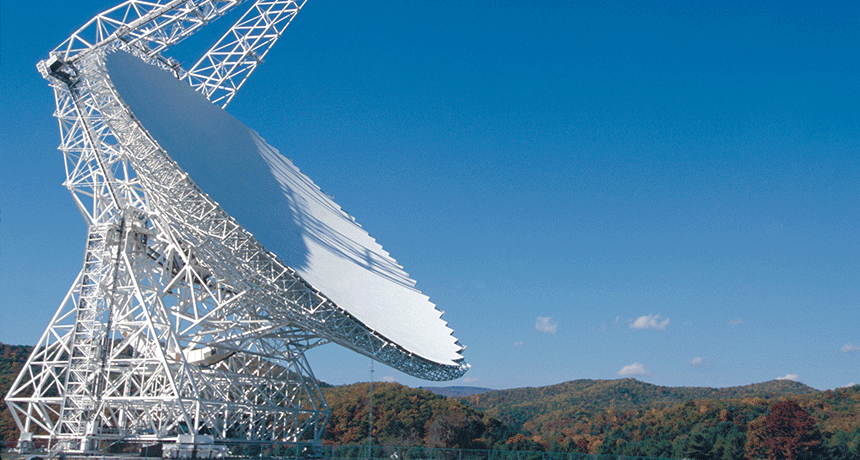Questions for ‘Wireless devices crowd out cosmic radio signals and more’

This telescope in Green Bank, W. Va., collects radio signals from outer space. But radio transmissions from other sources, such as cell phones and the internet, can interfere.
NRAO/AUI/NSF